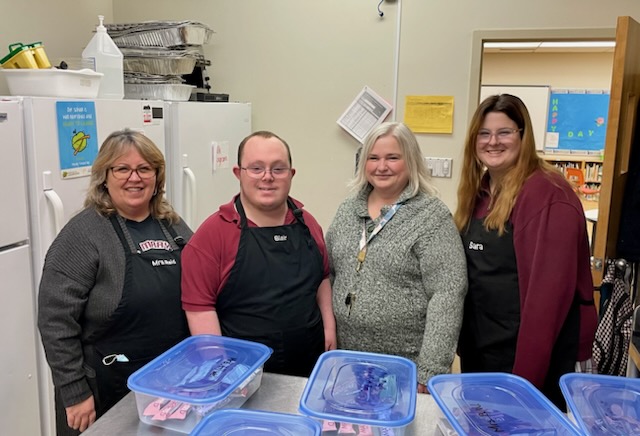Independent Living Skills
- Home
- Students
- Programs and Initiatives
- Independent Living Skills

may be coming from self-contained programs or an integrated setting
will benefit from a smaller student – teacher ratio
are working on personal goals as outlined in their Individual Education Plan
are functioning well below age level academically
often have difficulty socially and have low self-esteem
are tactile and experiential learners
may require additional support in relation to behaviour, personal, physical or emotional needs
Educational Assistants will be available to support student needs, as necessary
The students will participate in a variety of activities that focus on:
The students will focus on building:
The students will build skills around:
Each student will have a set of short and long term goals, established in cooperation with the school, parents / guardians, and any community partners. It will be those individual goals the students will work toward, and on which assessment will be based.
Provincial report cards will be distributed at the same time as all other secondary students. Parents / Guardians are encouraged to attend the school wide scheduled interviews to set goals for the next reporting period. Positive home involvement is a key element to the success of the students in Specialty Programming at St. Mary’s College.
100 Ontario Ave, Sault Ste. Marie, ON P6B 1E3
P: 705-945-5400 • TF: 1-800-267-0754 • F: 705-945-5575 • frontdesk@hscdsb.on.ca